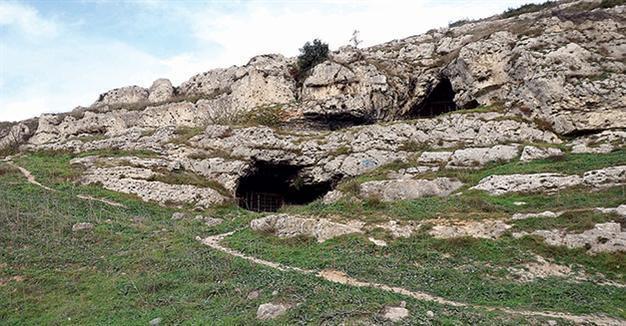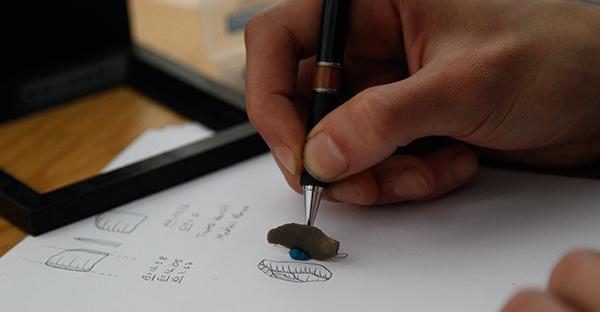Direkli Inn draws world academics: Official
KAHRAMANMARAŞ – Anadolu Agency

Direkli Inn, where the remains of animal skeletons from 2,5 million years ago as well as sharp tools resembling pocket knives and pens have been found, has drawn the attention of international academics specializing in “inn archaeology.” They want to take part in the archaeological excavations in Direkli Inn as well, according to an official on the excavation team.
The inn was discovered in the southern province of Kahramanmaraş in 1959 by Professor Kılıç Kökten. Archaeological excavations were initiated at the inn in 2007 with the help of Gazi University Archaeology Department Assistant Professor Cevdet Merih Erek. The excavations have been carried out by Culture and Tourism Ministry officials and university students.
The pocket knives, sharp tools and pens date back to the Paleolithic age and the skeletons of carnivorous and herbivorous animals date back to the Ice Age.
Erek said the team had collected all data about the region’s archaeological potential during the 10-year excavations.
He said that the excavations also unearthed a site from the Epi-Paleolithic and Neolithic ages, which both came after the Paleolithic age. “The works show us that that Kahrmanmaraş has big potential and archaeological data may be unearthed in almost all districts and neighborhoods of the city,” he added.
People who came to Anatolia from the Eastern Mediterranean coast and ones who came to the Eastern Mediterranean from Anatolia benefitted from this geography, Erek said, and continued: “Specifically, it was very important that Anatolian obsidians [volcanic glass] were found in Kahramanmaraş. Also, a shelled animal, which was living in the Sea of Galilee, was found in the city. We see that humans were very active in this region. We wrote a book to explain the 10-year excavations at Direkli Inn.”
Erek said Direkli Inn would be promoted during the “Society for American Archaeology” symposium, which has been held for 81 years in the U.S.
He said that the symposium was attended by academics working on “inn archaeology.”
“It is very important that the name of Kahramanmaraş will be heard in such an international symposium. Academics from all around the world will know about the inn here and will be able to make studies here. This place is an academic working center. Its most important result is that Kahramanmaraş will be promoted. Academics demand to work here. We want to extend the excavation field and work with them, too,” Erek said.
 Direkli Inn, where the remains of animal skeletons from 2,5 million years ago as well as sharp tools resembling pocket knives and pens have been found, has drawn the attention of international academics specializing in “inn archaeology.” They want to take part in the archaeological excavations in Direkli Inn as well, according to an official on the excavation team.
Direkli Inn, where the remains of animal skeletons from 2,5 million years ago as well as sharp tools resembling pocket knives and pens have been found, has drawn the attention of international academics specializing in “inn archaeology.” They want to take part in the archaeological excavations in Direkli Inn as well, according to an official on the excavation team.